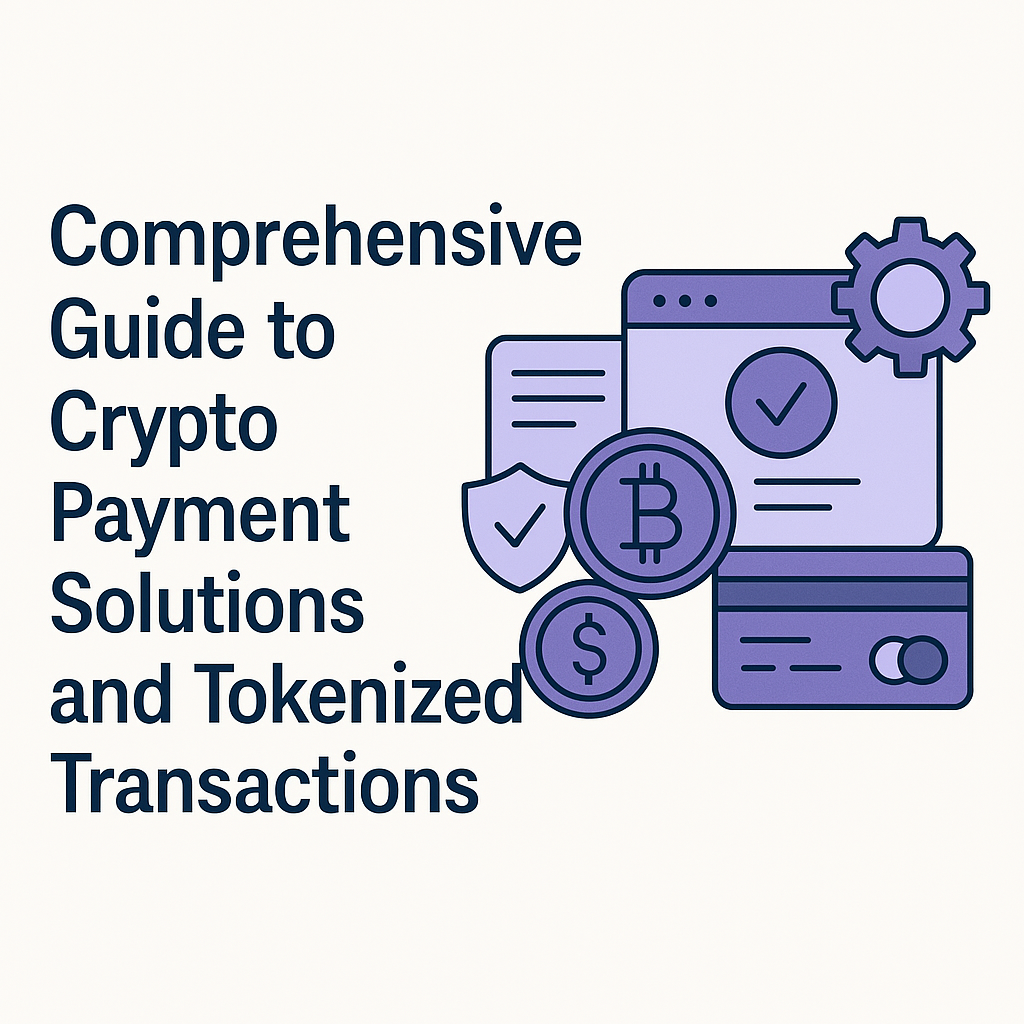Crypto Payment: Why and How to Accept Cryptocurrency Payments in 2025
2 июля, 2025 | by 16squaresmaster@gmail.com

In today’s digital-first economy, businesses must evolve beyond traditional payment methods. One of the most powerful shifts is the rise of crypto payment solutions. Whether you’re a startup, SaaS platform, or online retailer, the ability to accept cryptocurrency payments offers a global, cost-effective, and future-proof alternative to conventional payment systems.
In this article, we’ll explain what crypto payments are, how they work, why they’re gaining popularity, and how your business can integrate them — quickly and securely.
What Is a Crypto Payment?
A crypto payment is a transaction where a buyer uses cryptocurrency — such as Bitcoin (BTC), Ethereum (ETH), or stablecoins like USDT and USDC — to pay for goods or services. Instead of relying on a bank, card processor, or PayPal, the transaction happens directly on a blockchain, ensuring transparency, speed, and autonomy.
Why Accept Cryptocurrency Payments?
🌐 Global Accessibility
Cryptocurrencies are borderless. By choosing to accept cryptocurrency payments, your business can serve customers in any country, regardless of local banking infrastructure or currency restrictions.
💸 Lower Transaction Fees
Traditional processors charge 2–5% per transaction. Crypto payments often cost less than 1%, especially on blockchains like Polygon, Solana, or BNB Chain.
⚡ Instant Settlement
Forget waiting days for bank clearance. Blockchain transactions typically settle within minutes — improving your cash flow and reducing payment delays.
🔁 No Chargebacks
Crypto payments are irreversible. Once a transaction is confirmed, it cannot be reversed, eliminating fraud and chargeback risks.
🚀 Modern Brand Image
By offering crypto payments, you signal innovation and forward-thinking — especially valuable in tech-savvy or Web3-friendly markets.
What Cryptocurrencies Should You Accept?
To reduce risk and maximize usability, consider:
- Stablecoins (USDT, USDC, DAI) – Pegged to the US dollar, ideal for recurring or subscription payments
- BTC / ETH – Popular with crypto users, but more volatile
- Low-fee tokens (MATIC, SOL, BNB) – Great for microtransactions or international buyers
Most payment providers allow you to auto-convert these to fiat or stablecoins upon receipt.
How to Accept Cryptocurrency Payments
There are two primary methods:
1. Use a Crypto Payment Gateway
A crypto payment gateway is a service that handles wallet generation, payment verification, and fiat conversion. It simplifies crypto acceptance, even for non-technical teams.
Popular gateways include:
- BitPay – Supports BTC, ETH, and fiat payouts
- NOWPayments – Over 150 coins supported, API + plugins available
- Coinbase Commerce – Self-custodial, perfect for startups
- CoinGate – Subscription support and fiat settlement options
- BTCPay Server – Fully open-source and self-hosted
Gateways typically offer:
- Checkout pages
- QR code generation
- API access
- Plugins for WooCommerce, Shopify, Magento
- Recurring billing and invoicing features
2. Accept Direct Payments via Wallet
This is the simplest way for freelancers or small businesses to accept cryptocurrency payments. Share a public wallet address or QR code, and clients send funds manually.
⚠️ Caveat: You’ll need to track transactions manually, issue receipts, and convert funds if needed.
Use Cases for Crypto Payment Integration
| Industry | Crypto Payment Application |
|---|---|
| E-commerce | Accept BTC, ETH, or stablecoins at checkout |
| SaaS Platforms | Offer crypto billing for monthly or annual plans |
| Freelancers | Get paid instantly from international clients |
| Digital Creators | Accept donations or offer token-gated premium content |
| Nonprofits | Collect global crypto donations with on-chain transparency |
Legal, Tax & Compliance Considerations
Before you start, make sure to:
- Track the fiat equivalent at the time of payment for accounting
- Stay compliant with local tax laws regarding crypto income
- Consider using gateways that offer downloadable tax reports and audit logs
- Secure your wallet with 2FA and/or cold storage if self-managing funds
Many countries now recognize crypto as taxable property or income — treat it like any other digital asset.
Final Thoughts
Adopting crypto payment options is not just about innovation — it’s about unlocking new revenue streams, reaching international customers, and cutting costs. When you accept cryptocurrency payments, your business gains financial flexibility, operational speed, and a competitive edge in the digital marketplace.
The demand is rising. Early adoption means you’re not just keeping up — you’re leading.
RELATED POSTS
View all


